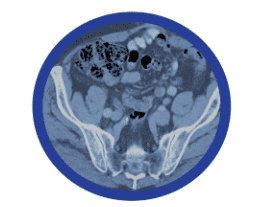Response Evaluation Criteria in Solid Tumours (RECIST)
RECIST (Response Evaluation Criteria in Solid Tumours) is an evaluation of how malignancy responds to therapy. Objectively assessing the efficacy of cancer therapeutics is key to defining the best treatment options, as well as obtaining regulatory approval for novel cancer treatments in clinical trials. RECIST aims to provide a set of guidelines and rules to help radiologists avoid unconscious heterogeneity in evaluation or reporting style. It aims to provide a reproducible and reliable method for deciding and documenting whether malignancy is progressing, is responding, or is static allowing cancer clinicians to determine efficacy in relation to treatment decisions, or other end points for clinical trials, such as overall survival, progression free survival, or time to progression.
This course has been developed by: Dr Damian Mullan, Consultant Radiologist and Dr Richard Hughes, Radiology Clinical Fellow, Bryony Cotterell, Senior Research Project Manager, and the Christie Education School Digital Learning Team.
Learning Outcomes
- Explore the basic tenets and principles of RECIST 1.1
- Recognise and integrate RECIST 1.1 terminology in oncological care and reporting
- Investigate the different forms of response and how they relate to progression
- Use the practical examples to differentiate between marker/non-marker lesions and select the correct ones to use as a baseline
- Identify the process that leads up to creating a standard RECIST 1.1 report
-
Damian Mullan
Dr Mullan graduated from University College Dublin, training in surgery and emergency medicine in Ireland before undertaking clinical radiology training in Liverpool. He holds fellowship by examination of both Irish and UK Royal Colleges. Dr Mullan completed a fellowship programme in Interventional Radiology at The Christie before his appointment as a Consultant in Diagnostic and Interventional Radiology.
-
Richard Hughes
Richard: Dr Richard Hughes is a Radiology Clinical Fellow at The Christie NHS Foundation Trust.

